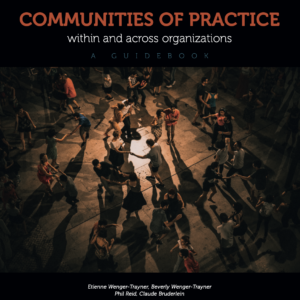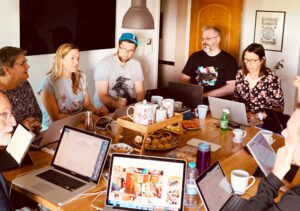NOTICE: There is an updated version of all these FAQs on our new website:
If knowledge is power, why would anyone want to share it?
Knowledge is indeed a source of power; but hoarding knowledge is not necessarily the best way to benefit from its power, especially in the context of communities of practice. [box type=”shadow”]Generalized reciprocity. In a community of practice, sharing knowledge is neither one-way nor merely a transaction. It is a mutual engagement in learning among peers. An improved practice benefits the whole community. Even experts benefit from having more knowledgeable colleagues. Contributing one’s knowledge is an investment in the stock of the community. In this context, the distinction between self-interest and generosity is not so clear. Reputation platform. A community of practice acts as a platform for building a reputation. It is a long-term interaction through which people get to know each other. Peers are in a position to appreciate the significance of each other’s contributions in ways that make their recognition meaningful. And because communities of practice usually cut across formal structures, reputation can extend beyond one’s unit. As one engineer put it: “The advantage of my community is that it allows me to build a reputation beyond my team.” [/box] With reciprocity and reputation combined, sharing becomes a major vehicle for realizing the power of knowledge. But it is often important that this process extend beyond the community and become an aspect of the integration of communities in organizations. This calls for mechanisms to translate community contributions and reputation among peers into organizational recognition, such as a rubric in performance appraisal for community contributions and career paths for people who take on community leadership.| << What about power in organizations? | Do we need to change our organizational culture? >> |
For more information, click here:
For a more precise definition, see our theory page on communities of practice:
For a bit more info, see our general (but brief) introduction to communities of practice and their use in various contexts:
For practical advice on cultivating communities of practice, see our new guidebook:
For workshops on cultivating communities of practice:


